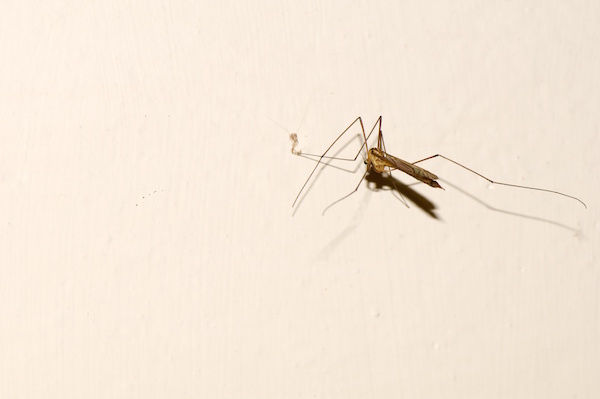
THURSDAY, Feb. 4 (HealthDay News) — Most parents make sure their children get all their vaccinations, but when it comes to adults these protective shots often fall by the wayside, a new report shows.
In fact, 40,000 to 50,000 American adults die each year from diseases that vaccines could have prevented, according to the report, Adult Immunization: Shots to Save Lives. The report was released jointly Thursday by the Trust for America’s Health, the Infectious Diseases Society of America and the Robert Wood Johnson Foundation.
“This country does not have an effective strategy for immunizing adults against infectious diseases,” Jeffrey Levi, executive director of Trust for America’s Health, said during a morning teleconference. “Thousands of lives could be saved each year if we could increase the number of adults who receive routine and recommended vaccinations. We need a national strategy to make vaccines a regular part of medical care and to educate Americans about the effectiveness and safety of vaccines.”
“The vast majority of vaccine-preventable disease, hospitalization and deaths occur among adults — that’s, for many, a new concept,” Dr. William Schaffner, chairman of the Infectious Diseases Society of America’s Immunization Work Group and co-author of the report, said during the teleconference. “This is unfortunate, if not tragic, because currently available vaccines can prevent many of these illnesses. The country has an absolutely stunningly first-rate system for immunizing children, but too many adults still fall through the cracks. It’s really time to build a better strategic approach for systematically immunizing adults.”
One example of a widely underused vaccine for adults is the pneumonia vaccine: in 36 states more than 30 percent of adults aged 65 and older have not been vaccinated against pneumonia.
This vaccine is recommended by the U.S. Centers for Disease Control and Prevention for all adults aged 65 and older. For most people, this is a one-time shot that will protect them from developing pneumonia, which is often a serious complication of flu.
Flu vaccine is another example. In 2008, only 36.1 percent of adults got a flu shot, according to the report.
In addition, only a few adults get other vaccine boosters that adults their age should have. In fact, only 2.1 percent of adults have had the tetanus, diphtheria and whooping cough vaccine. And only 10 percent of women have had the human papillomavirus (HPV) vaccine.
Not getting these vaccines not only causes thousands of preventable deaths, but accounts for $10 billion in preventable health care costs each year, according to the report.
There are several reasons adults bypass their vaccinations, according to the authors of the report:
- Access to vaccines is limited since most adults do not work in places that require vaccination.
- In many cases, insurance does not cover the cost of vaccines.
- Many adults do not have health insurance and cannot afford vaccines.
- Many adults believe vaccines aren’t safe or effective.
- There is not enough research and development of vaccines in the United States.
- Vaccine production methods haven’t been updated.
To increase the number of adults getting vaccinated, the authors of the report recommend:
- Having vaccines covered by health insurance, including Medicare.
- Covering vaccines for all uninsured adults.
- Educating the public about the safety and effectiveness of vaccines.
- Getting doctors to keep track of their patients’ vaccinations, and offering vaccines during regular exams and screenings.
- Providing government incentives for research and development of vaccines to ensure supply.
Infectious disease expert Dr. Marc Siegel, an associate professor of medicine at New York University, said the “timing of this report couldn’t be better.”
“It reminds us that we have a very poor track record for vaccines in the United States,” he said. “Vaccine is a tremendous tool for stamping out disease.”
Siegel also noted that vaccines wear off. “You need boosters,” he said.
Tetanus shots wear off every 10 years, he added. In addition, the vaccine against shingles only lasts five years, and only works in about 50 percent of people, Siegel said.
Getting the pneumonia vaccine is a “no brainer,” he said. “Pneumonia … [is] killing people. There is no reason whatsoever not to take this vaccine — and it lasts for six years.”
Siegel also noted that there are vaccines that guard against hepatitis, especially hepatitis B. “Hepatitis B is a huge killer and disabler, and it can be entirely prevented with a vaccine,” he said.
Siegel believes that doctors should take time to make sure that adult patients are offered vaccines. In addition, something needs to be done to counter the fear many have of vaccines, he added.
Vaccines virtually eliminated smallpox worldwide and polio in the United States, Siegel noted.
More information
For more information on vaccines, visit the U.S. Centers for Disease Control and Prevention.

